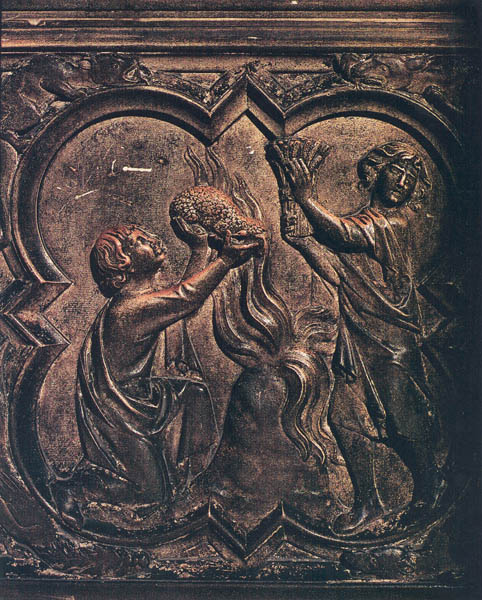Image Details

Erich Lessing
Abel and Cain, left and right respectively, make their sacrificial offerings to God in this 13th-century stone relief from Saint Chapelle, Paris. Abel offers a lamb, the firstborn of his flock, while Cain presents sheaves of grain, the fruits of his harvest. Tongues of flame rise to heaven on Abel’s side of the altar, but droop to the ground on Cain’s side, reflecting God’s acceptance and rejection of their respective sacrifices. The mystery of why God rejected Cain’s offering has puzzled generations of scholars and lay people alike. In the accompanying article, Professor Hendel examines four answers that have been suggested and considers the larger question of why God sometimes seems to act immorally in the Bible.
